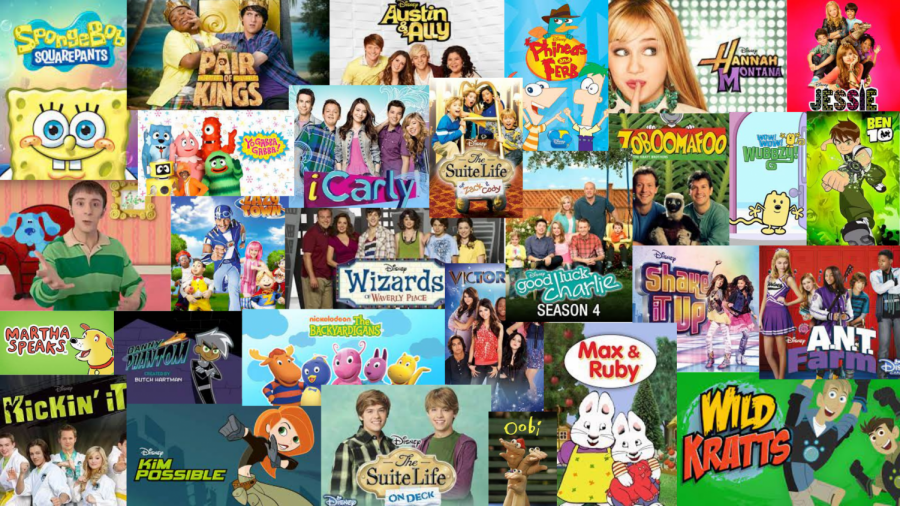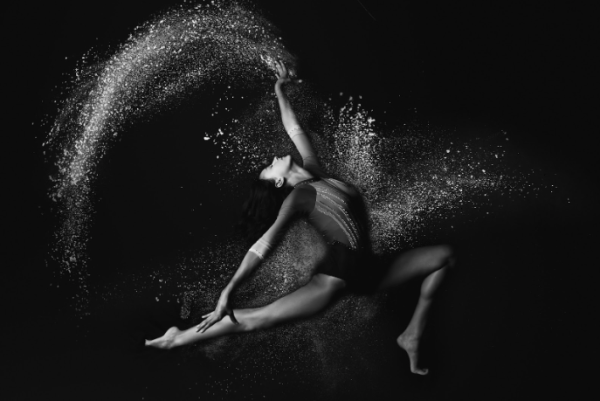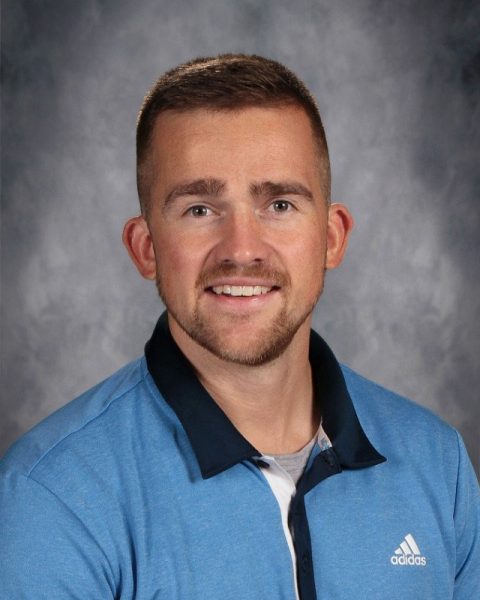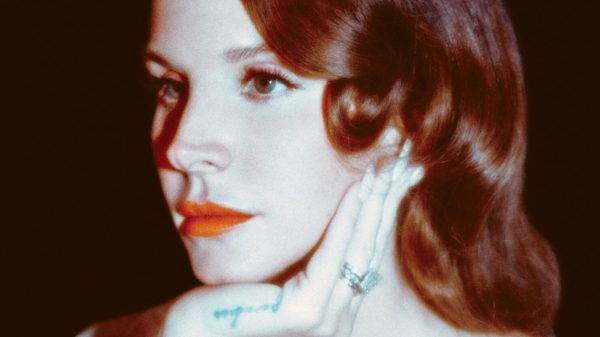The shows that shape us
As a generation that is incurably online, we have found a new way to shape who we become.
We grew up watching TV shows that taught us to tell time, count to 20, and solve our own problems. They taught us how to be respectful, about animals, and the names of colors.
These shows, from PBS as little kids, to Nickelodeon and Disney when we got older, shaped us in ways that we never realized. Only looking back can we see the impact they truly had on us.
We feel so connected to these characters, in a way that they seem to be our friends. In reality, they are just an actor or actress behind the screen. These connections have a reason.
Howard Sklar, professor and researcher at the University of Helsinki said in an article, “We’d have no way of processing a character cognitively if we didn’t have experiences with people outside of the fictional world. The experiences with fictional characters resonate with us because of the fact that we’ve had deep experiences with people throughout our lives.”
Even as children we had experiences, big and small, that began to shape us. As we learned, they taught. As we grew, they grew. The connection between the fictional character and ourselves grows deep.
Author of the article Rachel Nuwer said, “So long as a director gives proper perspective on a fictional character—allowing us to both imagine their pain and to perceive their experience from a distance…we can momentarily let go of the fact that that character exists only in the realm of fiction… In other words, we connect with them on an emotional level, as we would with a friend.”
These connections don’t seem to fade, and as we grow older we begin to look back on our childhood and all those who influenced us. Many can say family members, teachers, or friends. Many more can pinpoint a character from a movie or TV show they watched and enjoyed as a child.
“I always really liked SpongeBob. I don’t know why exactly but I think he was just kind of all over the place, I was a weird kid,” said senior Dyllan Evans.
While many of these characters seem elementary, there are characteristics that can symbolize and relate to how other kids feel and act.
“He’s kind of like a representation of kids who have ADHD, and are kind of all over the place, again, a lot of us were weird kids. It was nice to have someone who was like that too,” said Evans.
Animated shows, such as SpongeBob, were not the only ones that had impacts on how our generation developed. Shows on Disney and Nickelodeon, like ICarly and Jessie, had content that influenced us greatly.
“I thought Sam from ICarly was always really cool because she was so strong and kick-butt. I liked that whole show because it was borderline not for kids, but their comebacks and references ended being the root of my, and a lot of our generation’s sense of humor,” said Evans.
For some, television wasn’t something that they grew up on due to living situations.
“Most of my childhood was spent in Germany because my dad was in the military. I watched a lot of German propaganda. It was traumatizing,” said early-graduate senior Bailey Hunt.
For Hunt, her childhood was entirely different from many who grew up in middle class America. She feels she missed out on something vital that her peers all have in common.
“I didn’t really start watching or getting into TV until, like, the sixth grade. One of the only shows I watched was Blue’s Clues,” said Hunt.
Which leads to Steve Burns, host of Blues Clues. Leaving unexpectedly from the show, many of his viewers felt as though they had lost a friend.
It took nearly 20 years for Steve to come back, and when he did, the internet wept.
A Tik Tok gone viral posted by the man himself resurfaced many memories and feelings for a large group of people to whom Steve and Blue’s Clues was their childhood.
“Look at all you have done and all you have accomplished in all that time. And it’s just… it’s just so amazing, right? I mean, we started out with clues and now it’s what? Student loans, and jobs, and families, and some of that has been kind of hard, you know? I know you know. And that’s super cool. I guess I just wanted to say that after all these years I never forgot you. Ever.” Steve Burns said in his viral video.

For a generation who has been through so much, hearing someone say they are proud of us means everything, and it means even more when it comes from a source that helped us on our journey of growing up.
“I remember seeing the video all over people’s Instagram and Tik Tok. I was curious and watched it. I was surprised by how emotional I felt, just hearing somebody tell me that I was remembered,” said Hunt.
Not only do we feel connected to people like Steve, but also those who we watched and looked up to who pass away. Their deaths can strike cords in our hearts in ways that surprise us. Certain deaths stick with us more than others.
“Cameron Boyce. When he died, I just sat there and cried. I don’t even know, I think it was because he was only a couple of years older than us, and when it’s as unexpected as it was, it really hits you. You’re like ‘Oh, these shows still stream on Disney but you see him and know that he was our age, but he’s not alive anymore. Like that could have been any of us,” said Evans.
Cameron Boyce. Robin Williams. Heath Ledger. Chadwick Boseman. The list of actors and actresses that have passed away in our generations lives continues to grow. Including the recent loss of the lovely Betty White.
While most of the people who pass we feel connected to is due to the character they played, it still hurts to know that as you stare at the screen of your favorite movie, they are no longer there. They are no longer there to make you laugh, cry, smile, or sit in awe.
The way in which are generation was raised has caused us to latch onto the characters in these shows and movies. The shape who we were, are and who we will become.
They have taught us since we were young, and now they will watch us as we grow and take our places in the world.

Madelyn Bracken is a Co-Editor-in- Chief and senior and here at Carroll who hopes to later pursue a career in mass communications. She will continue her...





